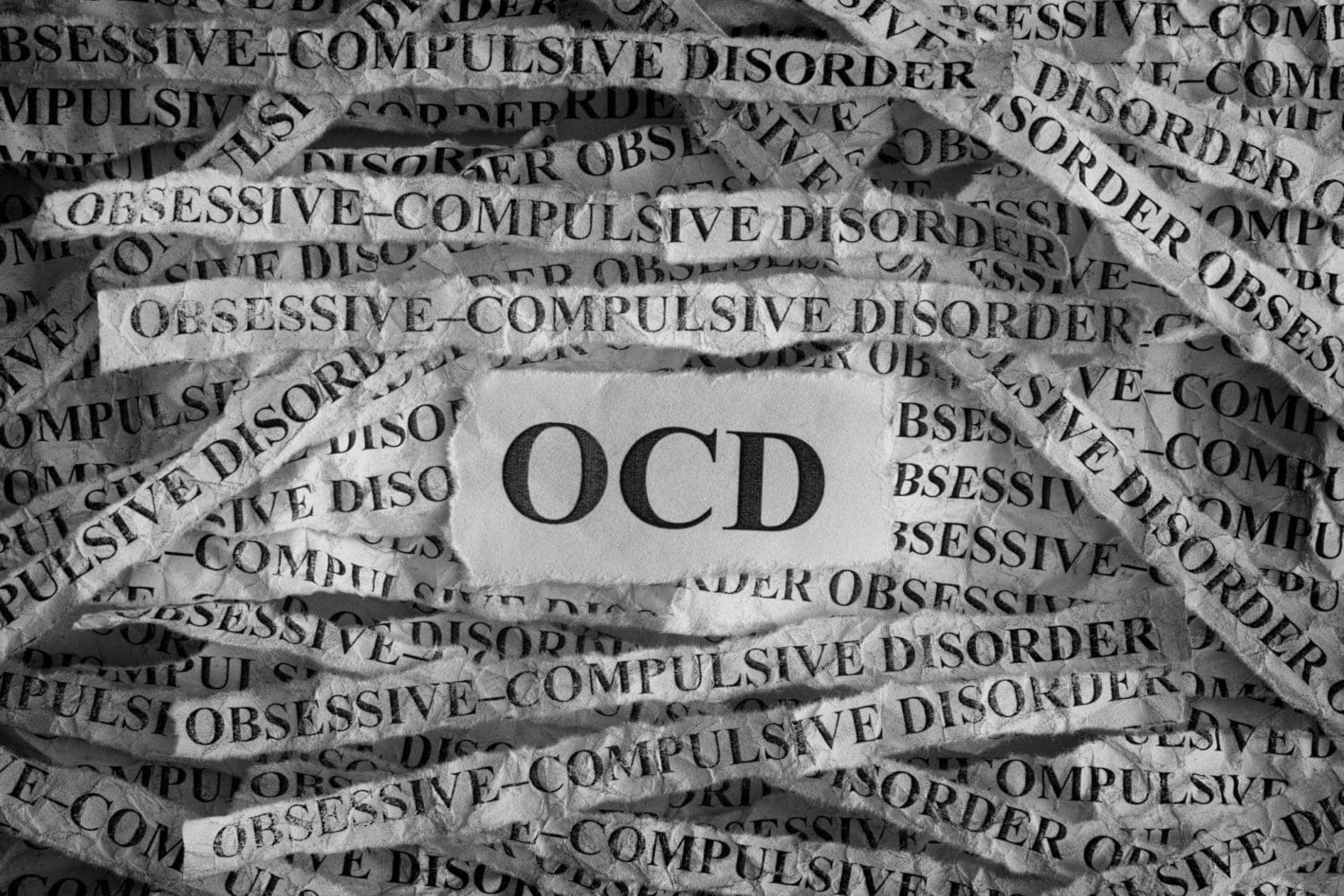OCD Treatment
Is OCD Causing You to Live a Life Full of Fear?
Do you find yourself trapped in a cycle of intrusive thoughts and compulsive behaviors, unable to break free from their grip? Is the constant need to perform certain rituals or repetitive actions taking over your daily life? Perhaps you’ve noticed how your rituals, meant to alleviate anxiety, only serve to amplify it, leaving you feeling trapped and exhausted.
The relentless pursuit of cleanliness, the overwhelming fear for your safety, or the persistent doubt that something terrible will happen if you don’t adhere to your rituals can consume your thoughts, making it difficult to focus on anything else. You may have tried to reason with yourself, telling yourself that your fears are unfounded or that you just need to push through them, but the anxiety persists, refusing to be silenced.

When your obsessional thoughts take over, the world around you can feel like a threat, each interaction fraught with potential danger. The fear of making a mistake, being responsible for harming a loved one, or failing to maintain order may keep you on high alert, your senses heightened to the point of exhaustion. And when the anxiety reaches its peak, it can manifest in sudden bursts of terror, triggering panic attacks that leave you gasping for air and questioning your sanity.
Your relationships may suffer as a result, as you struggle to explain your behaviors to those closest to you or find yourself withdrawing from social interactions altogether. The shame and guilt of not being able to control your thoughts and actions only add to your distress, creating a vicious cycle of anxiety and self-doubt.
With treatment we can help break the relentless cycles of obsessive thoughts and compulsive behaviors, face your fears, reduce and tolerate your distress, and learn to manage navigating these symptoms as they come up in the future.
Contact Us
OCD Blog Posts
No Results Found
The page you requested could not be found. Try refining your search, or use the navigation above to locate the post.
OCD Can Often Go Undiagnosed
Obsessive-compulsive disorder (OCD) is a widely prevalent mental health condition that significantly impacts individuals across the globe. According to the World Health Organization (WHO), OCD ranks among the top 20 causes of illness-related disability worldwide. Studies estimate that approximately 2-3% of the global population will experience OCD at some point in their lives, making it one of the most common psychiatric disorders.
However, despite its prevalence, OCD often goes undiagnosed or misdiagnosed. On average a person may spend 9 years in treatment until they receive a proper OCD diagnosis. And even once a diagnosis is made, oftentimes treatment is inaccessible due to many healthcare providers not being trained in providing the proper treatment. Many with OCD may struggle silently due to feelings of shame, embarrassment, or fear of stigma. Additionally, OCD symptoms can overlap with those of other mental health conditions, such as generalized anxiety disorder (GAD), making accurate diagnosis challenging for healthcare professionals.
Various factors contribute to the development of OCD, including genetic predisposition, environmental influences, and neurobiological factors. Individuals with a family history of OCD are at an increased risk of developing the disorder, suggesting a genetic component.
People living with other mental health conditions, such as depression, anxiety disorders, or attention-deficit/hyperactivity disorder (ADHD), frequently experience symptoms of OCD as well. OCD can impact individuals of all ages, genders, and backgrounds, but it often affects those who are predisposed to anxiety, have a family history of the disorder, or exhibit traits such as perfectionism or rigidity in their personality.

OCD can manifest in various forms, each with its own unique set of obsessions. These obsessions could include content related to fear of contamination, illness, or harm to yourself or others. Others may experience the need for symmetry/order and the need to feel “just right.” These obsessions can also relate to unwanted thoughts of a sexual nature. Compulsions can also vary person to person.
Compulsions are repetitive behaviors or mental acts performed to alleviate anxiety or distress caused by obsessions. Compulsion may include the following: checking and repeatedly verifying until anxiety decreases, handwashing and cleaning, seeking validation or reassurance from others, repeating actions or behaviors until anxiety decreases, mentally reviewing past events or actions, or even avoiding altogether.
OCD Treatment Can Help You Get Your Life Back
If you are struggling with OCD, Exposure and Response Prevention Therapy (ERP) can be utilized to treat this disorder. ERP is a specialized form of cognitive-behavioral therapy (CBT) designed specifically for OCD. Unlike traditional talk therapy, ERP focuses on directly confronting feared situations or stimuli (exposures) while refraining from engaging in compulsive behaviors (response prevention).
Imagine ERP as a journey we embark on together, where we gradually expose you to your feared thoughts, situations, or objects in a safe and controlled manner. Through this exposure, you’ll learn to tolerate the discomfort triggered by your obsessions without resorting to compulsive rituals.
In our sessions, we’ll collaborate to identify your specific obsessions and compulsions, as well as the underlying fears driving them. Understanding these triggers is essential for tailoring the exposure exercises to your unique needs.
During exposures, you’ll confront these triggers gradually, starting with less distressing stimuli and progressively working up to more challenging ones. Throughout each exposure, you’ll learn to manage the anxiety that arises without resorting to compulsive behaviors.
For example, if your OCD revolves around contamination fears, we might begin by touching a slightly dirty surface and resisting the urge to wash your hands immediately. Over time, we’ll increase the intensity of the exposure until you feel more comfortable tolerating uncertainty and resisting compulsions.
There are numerous benefits of ERP treatment for individuals with OCD. By confronting feared situations and learning to tolerate uncertainty, you’ll experience a decrease in anxiety over time.

As you gain mastery over your obsessions and compulsions, you’ll reclaim control over your life and engage in activities that were previously avoided. Unlike short-term coping strategies, ERP targets the root cause of OCD, leading to lasting symptom relief and improved quality of life.
Through ERP, you’ll develop invaluable skills for managing anxiety and facing challenges with resilience. If you’re struggling with OCD, know that you’re not alone, and help is available. At MIndworthy Therapy we offer ERP, a proven, effective approach for managing OCD symptoms and reclaiming control over your life. Together, we can work towards breaking free from the cycle of obsessions and compulsions, guiding you towards a future of greater peace and fulfillment.
We encourage you to reach out and take the first step towards healing. Remember, recovery is possible, and we’re here to support you every step of the way.
But You May Still Have Questions About
OCD Treatment…
Why can’t I just try to avoid my OCD symptoms?
Avoiding OCD symptoms may provide temporary relief, but it reinforces the cycle of anxiety and compulsions, ultimately maintaining and strengthening the disorder.
Through Exposure and Response Prevention (ERP) therapy, confronting feared situations without engaging in rituals helps to break this cycle by teaching the brain that these situations are not as threatening as perceived, leading to lasting symptom reduction and improved quality of life.
I worry OCD treatment utilizing ERP will make my symptoms worse.
Exposure and Response Prevention (ERP) therapy can temporarily increase distress as you confront feared situations without engaging in rituals, but over time, it’s designed to reduce OCD symptoms and improve overall functioning. While initially challenging, ERP is proven to be an effective treatment for managing and often alleviating OCD symptoms in the long term.
Will ERP therapy completely eliminate my OCD symptoms, or is it more about managing them?
ERP therapy aims to reduce the severity of OCD symptoms and improve functioning rather than completely eliminating them. While it may not eradicate all symptoms entirely, it equips individuals with effective coping strategies to manage their symptoms and lead fulfilling lives, even in the presence of occasional OCD-related challenges.
You Can Face Your Fears
If you’re ready to address your fears, we encourage you to schedule a free, 15-minute phone consultation by filling out the inquiry form on our website, sending us an email at info@mindworthytherapy.com, or calling our office at 847-497-5730. You will have the opportunity to ask questions about OCD treatment and determine if our practice is the right choice for you.
Contact Us

4 Signs You Might Be Entering a Narcissistic Relationship
MindWorthy Therapy Narcissist Blog
Address
1933 N. Meacham Rd.
Suite 200
Schaumburg, IL 60173
Contact
847-497-5730

Address
Contact
847-497-5730
